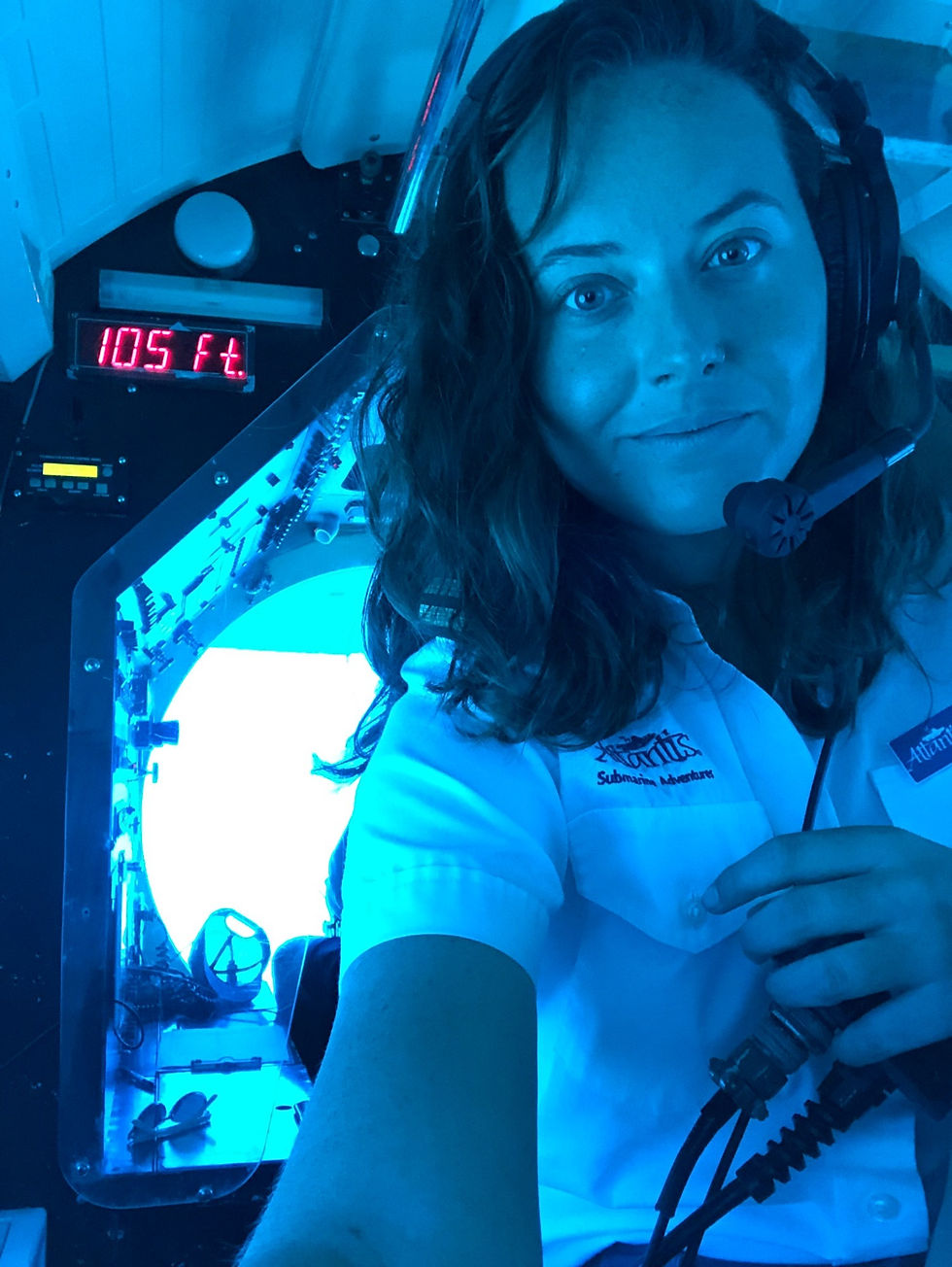How to get into Marine Science
- Apr 4, 2022
- 2 min read

Many varying aspirations can lead to a career in marine science. The field does not attract one specific area of study so I would recommend taking that into consideration in your undergraduate program. You do not need a degree in marine science/marine biology to have a career in marine science.
My best advice is to pursue an undergraduate degree in a general science- biology, chemistry, etc. Then look into a marine research internship. This allows you to see if the marine science field is truly the correct path for you. Sometimes the career we imagine in our heads isn’t the career in reality. If after an internship or two you decide maybe it’s not for you, you still have the ability to pursue other science fields and find the right match.
Finding marine internships and/or research opportunities can be tricky, especially if you’re looking for a paid position. My first marine internship was unpaid at the Hawaii Institute of Marine Biology (HIMB) and in order to make ends meet I also worked as a nanny and at my university. It was A LOT of time management but it opened many doors for me in the marine science world.
Another thing to keep in mind when pursuing a field in marine science is that many research positions now require a masters. Always be looking for funding and applying whenever you have the chance. Find out how much funding your masters program can provide you with before deciding. Marine science is fulfilling and rewarding in many ways but it is not a career you will “get rich” in so the last thing you want to do is start your career with a bunch of debt.
When you’re looking for a paid opportunity, start by going through your university. Many organizations that are popular on social media don’t have a great reputation amongst the actual field so it’s better for you and for the future of your career to have experiences under your belt through universities. E-mail the Dean of your department and set up a meeting time or take advantage of professors' office hours and ask them if they know of any opportunities. Many universities also provide a student advisor that could help you if you’re looking to travel for a marine opportunity. I have found many interesting labs to follow on instagram. This is a great way to connect with them and get a general sense of what they research and ensure their credibility.

A career in marine science can be grueling, but it is worth it to have a job you are passionate about. Even though I have struggled at times, I fully believe this is the path I was meant to be on.

Comments